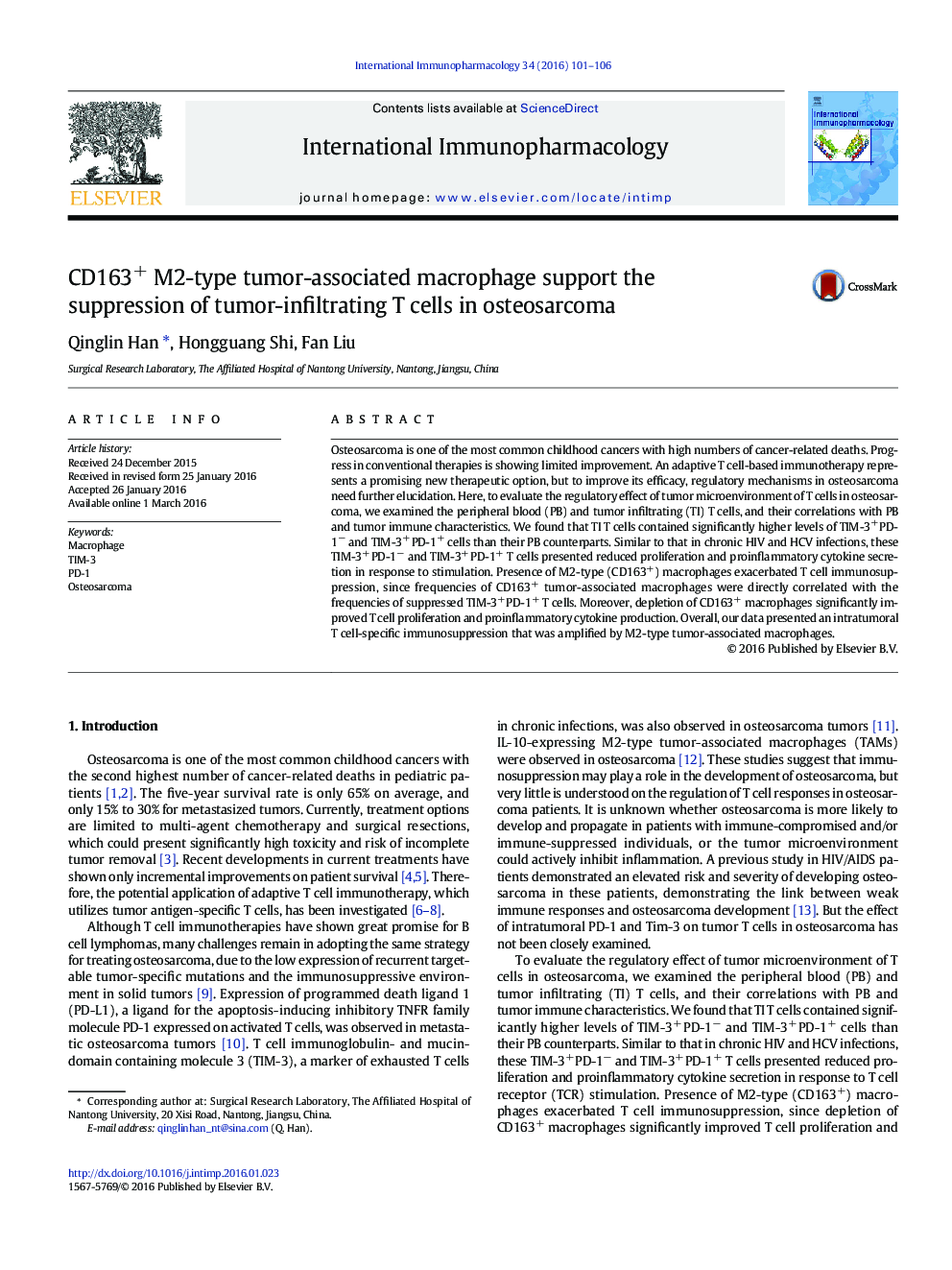| کد مقاله | کد نشریه | سال انتشار | مقاله انگلیسی | نسخه تمام متن |
|---|---|---|---|---|
| 2540266 | 1559756 | 2016 | 6 صفحه PDF | دانلود رایگان |

• We examined functions of tumor infiltrating T cells in osteosarcoma.
• High frequencies of TIM-3+ and TIM-3+ PD-1+ T cells were found in tumor tissues.
• TIM-3+ and TIM-3+ PD-1+ T cells showed weak proliferation and cytokine responses.
• TIM-3+ PD-1+ T cells in tumor tissues were correlated with IL-10 and M2-type TAM.
• Depletion of M2-type TAM improved T cell proliferation and cytokine production.
Osteosarcoma is one of the most common childhood cancers with high numbers of cancer-related deaths. Progress in conventional therapies is showing limited improvement. An adaptive T cell-based immunotherapy represents a promising new therapeutic option, but to improve its efficacy, regulatory mechanisms in osteosarcoma need further elucidation. Here, to evaluate the regulatory effect of tumor microenvironment of T cells in osteosarcoma, we examined the peripheral blood (PB) and tumor infiltrating (TI) T cells, and their correlations with PB and tumor immune characteristics. We found that TI T cells contained significantly higher levels of TIM-3+ PD-1− and TIM-3+ PD-1+ cells than their PB counterparts. Similar to that in chronic HIV and HCV infections, these TIM-3+ PD-1− and TIM-3+ PD-1+ T cells presented reduced proliferation and proinflammatory cytokine secretion in response to stimulation. Presence of M2-type (CD163+) macrophages exacerbated T cell immunosuppression, since frequencies of CD163+ tumor-associated macrophages were directly correlated with the frequencies of suppressed TIM-3+ PD-1+ T cells. Moreover, depletion of CD163+ macrophages significantly improved T cell proliferation and proinflammatory cytokine production. Overall, our data presented an intratumoral T cell-specific immunosuppression that was amplified by M2-type tumor-associated macrophages.
Journal: International Immunopharmacology - Volume 34, May 2016, Pages 101–106